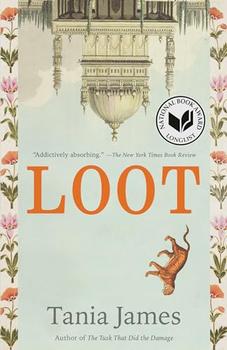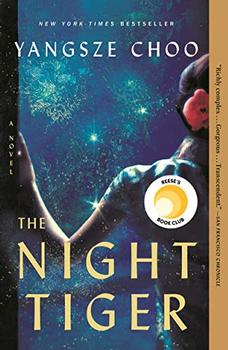Summary | Excerpt | Reading Guide | Reviews | Beyond the book | Read-Alikes | Genres & Themes | Author Bio

Packing a wildly varied cast of characters and all of their
stories on board a ship and expecting it to stay afloat through 500 pages seems
a dangerous proposition for a novel. With Sea of Poppies, Amitav Ghosh
proves it can also be a brilliant one. In a thoroughly enjoyable blend of
historical fiction, comedy of manners, linguistic play, and socio-political
underpinnings, the Ibis becomes its own sea-borne universe populated by
travelers cut off from the past, trapped and set free all at once by total
isolation.
A fallen Raja; the son of a freed American slave and her white
owner; a French orphan girl disguised as a man and seeking her heritage; the
widow of an opium addict and indentured poppy grower; a mysterious prisoner; and
dozens of others converge on the ship's decks as sailors, servants, laborers,
spiritual seekers, and stowaways. Soon, men and women who would never have dared
to glance in each other's direction are crammed together and dependent on one
another for survival. In desperate re-alliances they find a certain thrill at
shedding the rigid shells of conformity, relishing their emerging intellectual
and emotional freedom, despite their physical confinement. Each of their stories
unfurls with a flourish into a brilliant tapestry, then folds neatly back into
the hold of the ship, and each tantalizing drama always left me hungry for more.
It's easy to see Sea of Poppies as the first installment of a trilogy -
Amitav Ghosh admits there may be even more - as each character could well be the
protagonist of his own novel.
It's just as easy to see how such a vast enterprise could become
unwieldy and messy, but Amitav Ghosh's masterful handling never lets the story
veer off course. His narration is full and lush, but never verbose, his
plotlines serpentine, but always fluid and fast. He paints scenes with precise,
colorful strokes, and clothes characters with a couturier's eye and tailor's
thread, every element coming alive in vivid detail. But above all, Ghosh revels
in language. Aboard the Ibis, sailors and servants from around the globe
speak a language known only on the high seas. It is a melodious and often
hilarious hodgepodge originally formed around the argot of ships: "an anarchic
medley of Portuguese calaluzes and Kerala pattimars, Arab booms and Bengal
paunchways, Malay proas and Tamil catamarans, Hindusthani pulwars and English
snows – yet beneath the surface of this farrago of sound, meaning flowed as
freely as the currents beneath the crowded press of boats."
As the language departs from the concrete vocabulary of vessels
and their parts, meaning breaks down, but the speakers forge ahead into
delightful misunderstandings with unwittingly bawdy undertones. There is a
glossary of sorts at the back, but after a few exchanges, you get the gist –
which is just about what the characters themselves get as they attempt to bridge
linguistic impasses. Struggling to decode the strange patois, then slipping into
its lilts and rhythms, illuminates how malleable language is, how much we mold
and shape it to our own contexts and purposes, and yet so often view it as a
rigid structure not to be tampered with. The pidgin tongue isn't always easy
reading, but it's certainly fun. As Amitav Ghosh remarks in an interview with
New York Magazine, "The idea that language is a warm bath into which you
slip in a comfortable way, to me it's a very deceptive idea."
Sea of Poppies emerges as a lively testament to the richness
of "uncomfortable" language, but it's also a terrifically engrossing adventure
story, a historical narrative, a comment on politics and society, all spun very
carefully into a luxuriously dramatic read.
![]() This review was originally published in The BookBrowse Review in January 2009, and has been updated for the
October 2009 edition.
Click here to go to this issue.
This review was originally published in The BookBrowse Review in January 2009, and has been updated for the
October 2009 edition.
Click here to go to this issue.

If you liked Sea of Poppies, try these:

by Tania James
Published 2024
A spellbinding historical novel set in the eighteenth century: a hero's quest, a love story, the story of a young artist coming of age, and an exuberant heist adventure that traces the bloody legacy of colonialism across two continents and fifty years. A wildly inventive, irresistible feat of storytelling from a writer at the height of her powers.

by Yangsze Choo
Published 2020
A sweeping historical novel about a dance-hall girl and an orphan boy whose fates entangle over an old Chinese superstition about men who turn into tigers, set in 1930s Malaysia.
Your guide toexceptional books
BookBrowse seeks out and recommends the best in contemporary fiction and nonfiction—books that not only engage and entertain but also deepen our understanding of ourselves and the world around us.